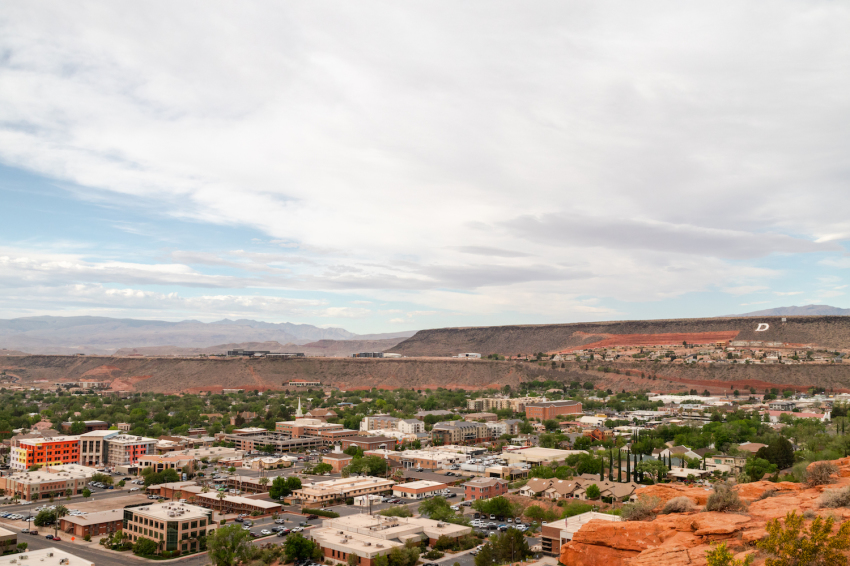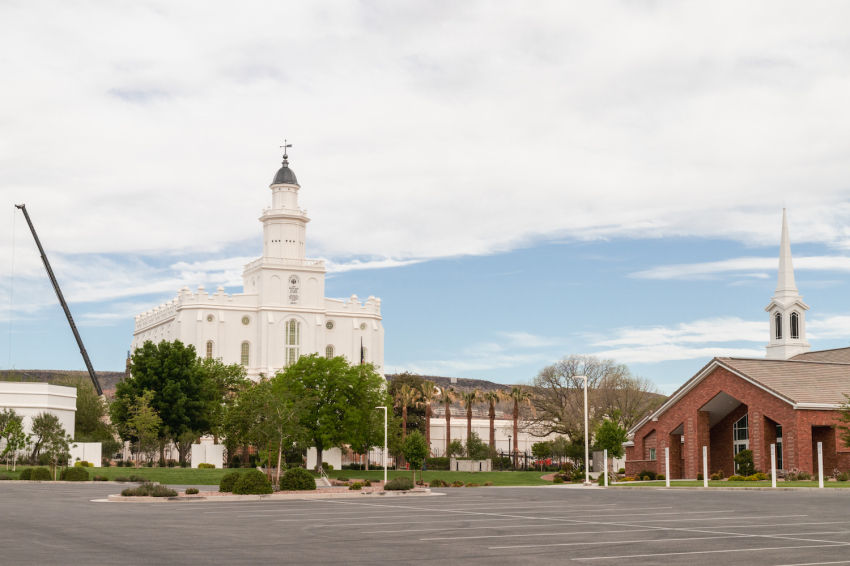Travel: Postcard from St. George

Name notwithstanding, the fast-growing Utah city of St. George wasn’t named for the saint depicted in religious art as slaying a dragon.
Canonized in 492 by Pope Gelasius, the real Saint George is the principal patron saint of England. By contrast, St. George was founded in 1861 as a cotton farming community and by tradition takes its name from George Smith, a cousin of the prominent Mormon religious leader Brigham Young and an apostle in his own right of the Church of Jesus Christ of Latter-day Saints.
While cotton is long gone, the local nickname of Dixie is still used. This has drawn the ire of wokists, who succeeded in getting the local college, Dixie State University, to change its name.
Young, who succeeded Mormonism founder Joseph Smith as second president of the church and led pioneers across the vast and largely unsettled American West into present-day Utah, was one of the first snowbirds. His postbellum home is now a museum.
While Mormons or Latter-day Saints, as the church prefers to call adherents of the nontrinitarian faith, are inseparable from the city’s history and heritage, St. George today is probably known more for being the gateway to Greater Zion.
Located within Washington County, the area includes Zion National Park, several state or local parks and endless swaths of public land for thrill-seekers and outdoor enthusiasts from around the world. Among them are the more than 3,000 triathlon athletes competing in this weekend’s Ironman World Championship.
Greater Zion’s stunning landscape — composed of sweeping desert vistas and spectacular red rock formations — humbles believers and nonbelievers alike.
Beyond the close-up encounters with the Master Artist’s work, St. George must be one of the most underrated places anywhere in the Southwest. In fact, you can easily spend a weekend here without going to the increasingly overcrowded national park.

The handsome cityscape, which is lined with 31 outdoor sculptures, feels vaguely small-town Midwest with some Southern influences.
The arts and culture scene is complemented by a growing number of restaurants and even microbreweries — all a direct result of St. George’s population more than tripling between 1990 and 2020.
Overshadowing the transformation of the city are two towering Mormon edifices that harken back to a much different era.
The most important of the two churches is St. George Temple, which kind of resembles a fairytale castle. Built in the 1870s, the temple is the rough equivalent of a cathedral. It’s also where certain Latter-day Saint ordinances or sacraments are performed.
Meanwhile, St. George Tabernacle at the roundabout on Main Street is no longer actively used for worship. Carefully restored to its original 1870s interior appearance, it looks like a Protestant meeting house-style church from somewhere in New England.
If you go
The Brigham Young Winter Home and St. George Tabernacle are free and open to the public. Another free museum, the McQuarrie Memorial Museum, tells the story of early pioneers. The temple, as with all church temples, is generally closed to non-Mormons. (It’s closed anyways for a multi-year renovation.)
Outside of St. George, the antebellum Jacob Hamblin Home in nearby Santa Clara and the Grafton ghost town are also worth visiting. Both are also free.
Alternatives to Zion National Park include Sand Hollow State Park, Snow Canyon State Park and Pioneer Park, a 52-acre city park overlooking St. George.
I stayed in the heart of downtown at The Advenire Hotel, a newish upscale hotel in Marriott’s boutique Autograph Collection. Other hotel options include the Inn on the Cliff and Hyatt Place.
St. George Regional Airport is served by the regional carriers of American, Delta and United. The closest major airport is two hours away in Las Vegas.
Trip planning resources are available through the Greater Zion Convention & Tourism Office.
Dennis Lennox writes a travel column for The Christian Post.
Dennis Lennox writes about travel, politics and religious affairs. He has been published in the Financial Times, Independent, The Detroit News, Toronto Sun and other publications. Follow @dennislennox on Twitter.



























